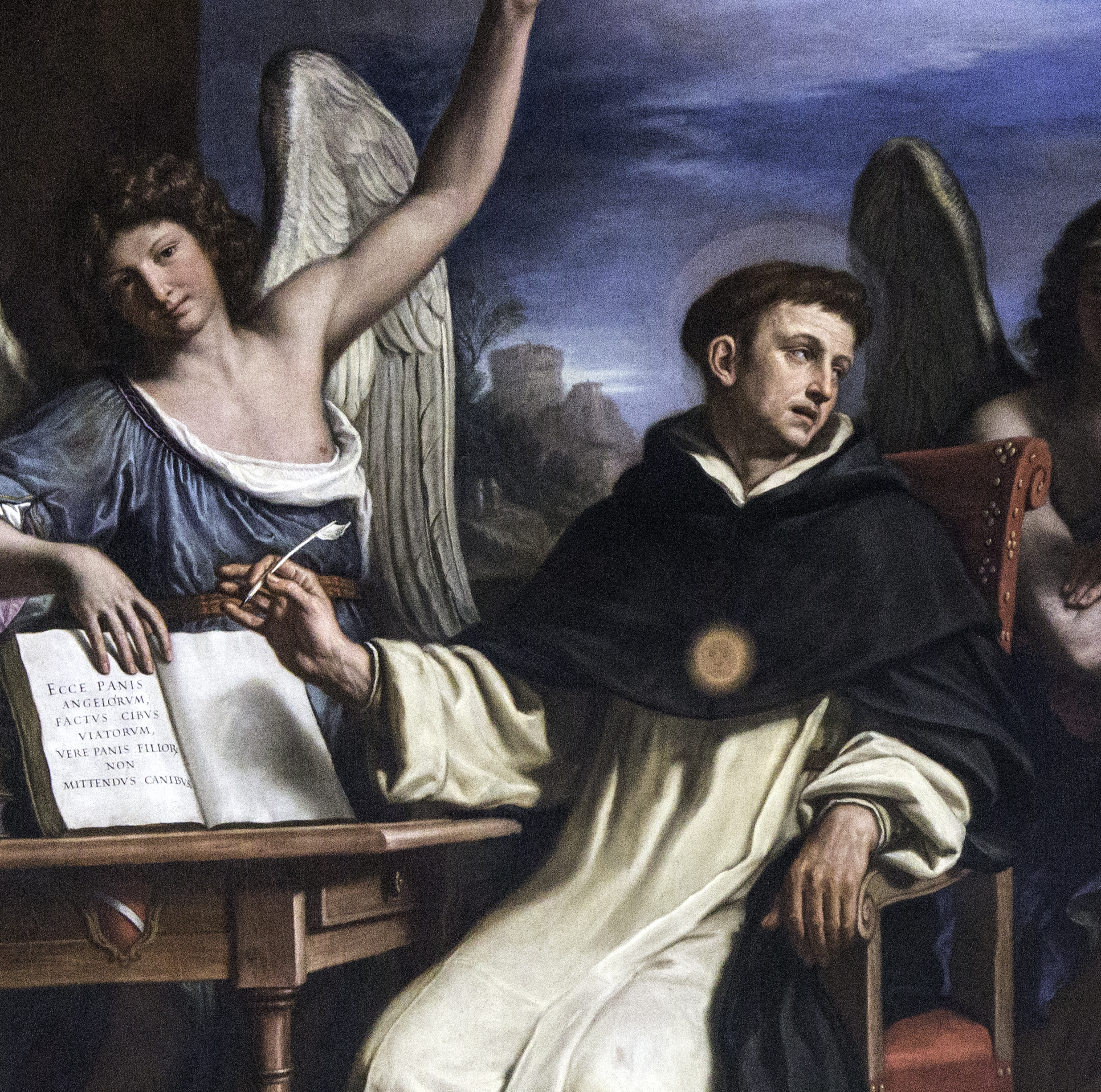Chapter 24: The Angelic Will¶
St. Thomas seeks to understand the angelic will by the object to which that will is specifically proportioned. Scotus insists rather on the subjective activity of that will.
Studying the object of the angelic will, St. Thomas concludes that certain acts of that will, though voluntary and spontaneous, are nevertheless not free, but necessary, by reason of an object in which the angelic intelligence sees no imperfection, but perfect happiness. As regards angelic freedom of will, he holds that angelic choice, like human choice, is always determined by the last practical act of judgment, but that the act of choice by accepting that judgment makes it to be the last. Scotus, on the contrary, holds that freedom belongs essentially to all voluntary acts, and that free choice is not always determined by the last practical act of judgment. On this point Suarez follows Scotus. Against them Thomists invoke the following principle: “If nothing can be willed unless it be foreknown as good, then nothing can be here and now preferred unless it be here and now foreknown as better.” 606 In other words, there can be no will movement, however free, without intellectual guidance, otherwise we confound liberty with haphazard, with impulse, which acts necessarily and without reflection. Here lies the source of the chief doctrinal divergences concerning the angelic will.
St. Thomas teaches that the objects which the angel loves, not freely, but necessarily, at least necessarily as regards specification, are, first, his own happiness, second, himself, third, God as author of his nature, the reason being that in these objects he can find nothing repulsive. 607 Hence it is more probable that the angel cannot, at least not directly and immediately, sin against the natural law, which he sees intuitively as written into his own essence. 608 Yet the demons, in sinning directly against the supernatural law, sin indirectly against the natural law which prescribes that we obey God in everything He may command.
Further. If the angel sins, his sin is necessarily mortal, because, seeing end and means with one and the same intuitive glance, he cannot be disordered venially, i. e.: in regard to means, without previous mortal disorder in regard to his last end.
Again, the sin of the angel is irrevocable, and hence irremissible. In other words, since the angel chooses with perfect knowledge after consideration, not abstract, discursive, successive, but intuitive and simultaneous, of all that is involved in his choice, he can no longer see any reason for reversal of his choice. Hence arises the demon’s fixed obstinacy in evil. Nothing was unforeseen in his choice. If we were to say to him: “You did not foresee this,” he would answer, “Surely I foresaw it.” With fullest knowledge he refused obedience, and refuses it forever in unending pride. Similarly the choice of the good angel is irrevocable and participates in the immutability of God’s free act of choice. 609 St. Thomas cites approvingly the common expression: Before choice the free will of the angel is flexible, but not after choice. 610.
Scotus admits none of these doctrines. No act of the angelic will is necessary, not even the angel’s natural love of his life or of the author of life. The will can sin even when there is no error or lack of consideration in the intellect, because free choice is not always conformed to the last practical judgment. The first sin of the demon is not of itself irrevocable and irremissible. The demons, he says, committed many mortal sins, before they became obstinate in evil, and could have repented after each of those sins. And their obstinacy itself he explains extrinsically, as due to God’s decree that, after a certain number of mortal sins, He would no longer give them the grace of conversion. On these points Suarez follows Scotus, since he too holds that free choice is not always conformed to the last practical judgment. But he does not explain how free choice can arise without intellectual direction. Thomists repeat: Nothing can be willed unless here and now foreknown as better.
Contrast shows clearly that St. Thomas has a higher conception of the specific distinction between angelic intelligence and human intelligence than have Scotus and Suarez. Faculties, habits, and acts are proportionally specified by their formal objects. To this principle, repeatedly invoked in the Summa, Thomism insistently returns.
This treatise on the pure spirit, on intuitive knowledge, lies on a very high level. Its conclusions on the angelic will are faithful to the principle: nothing willed unless foreknown as good. From the speculative point of view this treatise is a masterpiece, a proof of the intellectual superiority of the Angelic Doctor, an immense step forward from the Sentences of Peter the Lombard. Scotus and Suarez did not maintain this elevation, did not see the sublimity, intellectual and voluntary, of the pure spirit as contrasted with the lowly intellect and will of man.
